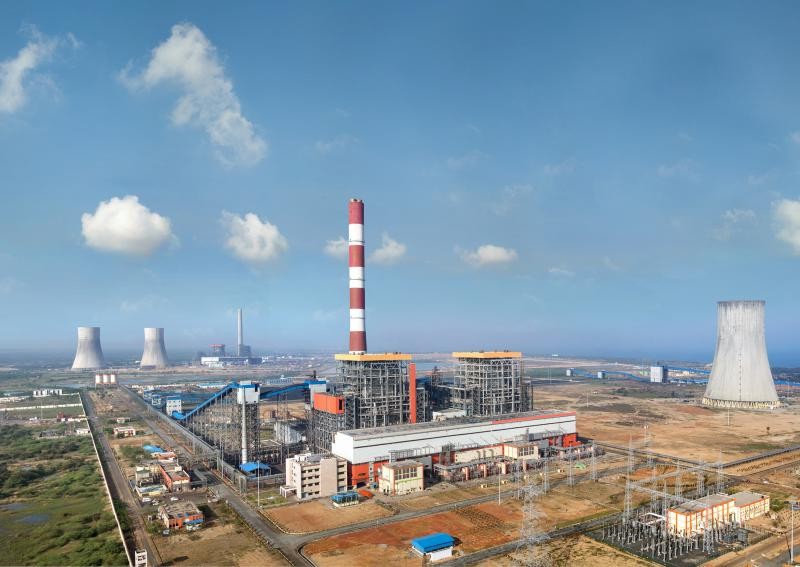Sembcorp opening $4 billion India power complex

SEMBCORP Industries' income from India will be "quite substantial" in the coming years as its investments in the country start operating and it builds up a bigger presence there, said its chief executive Tang Kin Fei.
With the start-up of its US$3 billion power complex in the southern state of Andhra Pradesh, plus the wind and solar power assets it already owns and is building, India will make up more than 3,500 megawatt (MW), or over 30 per cent, of the firm's 10,000 MW power generation portfolio.
The large demand in the fast-growing country also means there is more room to grow, in both conventional and renewable power generation, Mr Tang said.
The Sembcorp Gayatri Power Complex, sited in the city of Nellore in Andhra Pradesh, will have a generation capacity of 2,640 megawatt - enough to meet about one-third of Singapore's peak energy demand. It comprises two 1,320 MW coal-fired power plants.
Representing the largest foreign direct investment project on a single site in the sector in India so far, the complex will be officially opened by Andhra Pradesh's chief minister Shri N Chandrababu Naidu and Singapore's Minister for Trade and Industry (Industry) S Iswaran today.
Speaking to reporters in Singapore before the event, Mr Tang said that many had been sceptical when Sembcorp first invested in the project in early 2011, questioning whether the large power plant would be built, and whether it would be commercially viable.
The group did face "many, many problems" along the way, he conceded, but its commitment and skillsets have allowed it to complete the project as planned.
The first power plant, Thermal Powertech Corporation India (TPCIL), started full commercial operations in September last year, and has already secured contracts for 86 per cent of its capacity.
This includes a 500 MW contract to supply to the states of Andhra Pradesh and Telangana for 25 years, and a 570 MW contract to Telangana for eight years.
The second plant, NCC Power Projects (NCCPP), will be fully operational from September this year.
TPCIL is 67.4 per cent-owned by Sembcorp, with the remainder owned by Hyderabad-based infrastructure company Gayatri Projects. NCCPP is 49 per cent-owned by the Singapore firm; the rest is held by NCC Infrastructure Holdings, jointly owned by NCC Limited and Gayatri Energy Ventures.
The power complex will not be limited to selling power within the two states, said Mr Tang, explaining that suitable sites for coal power generation are limited in India.
This is because such plants need cheap access to water for cooling down, as well as a reliable supply of coal. The Sembcorp Gayatri Power Complex's location near the port allows it to import coal from both domestic and international sources, said Mr Tang.
There is more land available in the power complex for its generation capacity to be doubled, but Sembcorp will likely do so over the next 20 years in order not to build up to overcapacity, he added.
The company is also developing a material manufacturing plant within the power complex which will recycle residual fly ash produced from the power generation process into eco-friendly building materials that can be used for modular construction. This will be operational next year.
Given the increasing power needs of India, Sembcorp expects a brisk expansion in its renewable energy business there as well. It already has solar and wind assets totalling 1,000 MW through Sembcorp Green Infra, which it acquired last year and now holds 64 per cent of.
The group expects to add between 300 and 500 MW of renewable energy generation annually in India and China each, potentially doubling its current renewable energy capacity of 1,500 MW in less than two years.
There are "low-hanging fruits" to be found in Sembcorp's water projects and industrial parks around the world which have plenty of land and large energy needs, said Mr Tang.
In a pre-trip interview with the media, Mr Iswaran said that Sembcorp's investment illustrates how Singapore companies continue to head overseas and leverage on their capabilities.
"Amidst the current global economic uncertainty, there are still opportunities in countries like India, where growth prospects remain positive. Internationalisation is an important growth strategy for our businesses, and it is promising that Singapore companies like Sembcorp continue to build on their strengths to successfully expand overseas," he said.
Besides power generation, Sembcorp, together with Ascendas-Singbridge, has also expressed interest to help build the new capital city for Andhra Pradesh. The firm is awaiting the government's selection for master developers to drive core parts of the project, said Mr Tang.
sandrea@sph.com.sg

This article was first published on February 27, 2016.
Get a copy of The Straits Times or go to straitstimes.com for more stories.